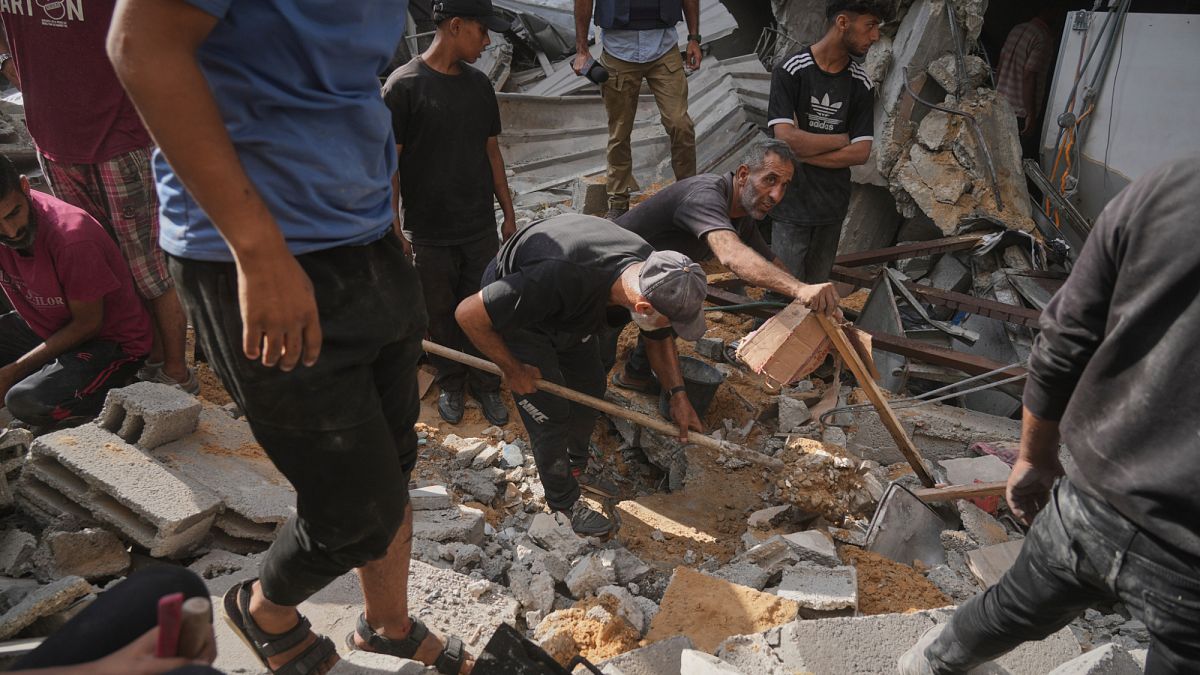

Recent events across the Middle East and Ukraine illustrate a concerning escalation in conflict and violence, drawing attention to regional instability and its far-reaching impacts. The situation in Gaza, Syria, and Sudan reflects a complex tapestry of historical tensions and current geopolitical dynamics, all stirring under the weight of continued military actions and political discord.
Overnight, Gaza City was engulfed in distress as Israeli airstrikes hit multiple neighborhoods, leaving behind a trail of destruction and loss. The attacks sparked widespread mourning, with local hospitals witnessing the consequences of the strikes firsthand. These attacks are part of heightened regional military activities, emphasizing ongoing tensions and their impact on civilian lives.
Parallelly, in Syria’s Sweida province, sectarian violence erupted, demanding attention to the fragile peace maintained in these regions. The violence escalated when Israeli forces launched an airstrike, contributing to rising regional and sectarian tensions. Nearby, clashes between the Druze minority and Sunni Bedouins, which began with tit-for-tat kidnappings, highlight the underlying socio-political complexities that contribute to such unrest. A Druze leader has accused the government of breaking a ceasefire, a move seen as deteriorating the already delicate balance in the area.
In Southern Syria and Lebanon, Israeli bombing raids targeted government and Hezbollah forces amid ongoing sectarian clashes. The strikes were concentrated in the province of Deraa and Lebanon’s Bekaa Valley, emphasizing the geographical spread of instability. These operations further complicate the regional dynamics, as neighboring Lebanon also deals with its internal issues.
Sudan is witnessing its own share of violence, with the paramilitary Rapid Support Forces (RSF) accused of executing deadly attacks resulting in nearly 300 deaths in North Kordofan. Activists decry these attacks, pointing out the lack of military objectives in these raids and underscoring the humanitarian crisis resulting from ongoing civil war since 2023. The RSF’s actions against the Sudanese army mark one of the critical frontlines, reflecting a broader struggle for power and influence within the country.
In Eastern Europe, the situation in Ukraine remains tense as Russia has intensified its military engagements following a peace deal ultimatum set by former President Trump. Russian forces are attempting a significant breakthrough along a 1,000-km frontline, deploying drones and missiles with increased frequency, marking the most intense activity in the region in three years. The enduring conflict adds layers of complexity to the existing geopolitical landscape, presenting challenges to peace and stability.
Overall, the recent escalation in military actions across these regions brings to light the interconnected nature of global geopolitical issues and their far-reaching consequences. While the humanitarian impact cannot be overstated, the ongoing conflicts demand a concerted international effort to seek peace and restore stability. These incidents underscore the need for diplomatic engagement and peaceful resolution to avert further crises and cultivate a future of enduring peace and cooperation.
Source: {link}
